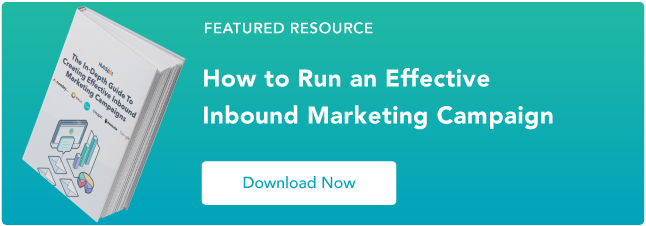Our business is focused primarily on B2B, meaning most of the clients we work with and the prospects we talk to are marketing and selling to other businesses.
We’re part of the growing army of inbound marketing agencies that learned inbound first as a way to market our own businesses, and after seeing how well it worked for us couldn’t wait to start talking to clients and prospects. We willingly describe ourselves as “Drinking our own KoolAid®.”Learn how to run more impactful, measurable marketing campaigns.
We get all kinds of businesses and organizations as leads, but my favorites continue to be industrial manufacturers, businesses that build complex, relatively expensive stuff for other businesses. Their targets tend to be engineers, scientists, operations and plant managers, supply chain directors, all very serious, responsible people trying to make effective, valuable decisions about vendors, technologies, and business-improvement strategies. We recently wrote a post about a client, Fisher Tank Company, who could be the poster child for the industrial manufacturer market.
So why do I like doing business with these folks? I enjoy how quickly they reveal the contradictions they’re living with regarding their industry and changes in buyer behaviors. It leads to something that I've coined as the "Oh s**t" moment.
The “Oh S**T” Moment!
So how does this expletive infused discussion start? Conversations often go something like this:
Me: So, why are we talking today?
Prospect: Well, it feels like the things we’ve traditionally done to grow our business just aren’t working like they used to, so we’re trying to explore other potential methods. We’ve heard inbound marketing is something we should investigate.
Me: That’s great! Inbound marketing is all about making your business perfectly visible online to your best prospects. We use online content marketing, SEO, social media, and marketing automation to turn traffic into leads and qualified leads into customers.
Prospect: Now just wait a minute. Our business is different.
Me: How is it different?
Prospect: What I mean is, our prospects and customers are different. They’re serious people who aren’t wasting their time on social media. They read trade journals, not blogs, and if they’re on LinkedIn it means they’re looking for a job.
Me: I’m pretty sure the facts don’t support that.Did you know that over 90% of B2B buyers start their research on Google? So if they don’t find you, you don’t make it on their short list.
Prospect: You mean consumers, right? People looking for a new car, or an iPhone 5, or a new HD TV.
Me: No, I mean people looking for a new conveyor system, or packaging equipment, or someone to build a storage tank farm. They start by asking search questions about problems they’ve had, or deficiencies in their current equipment, or new technologies they’ve heard about. And the companies that show up as credible experts make it on to their short lists.
Prospect: Oh S**t!
The “Oh S**t” moment is priceless because it signals that they admit, at least directionally, that things have changed and they need to start changing too. If they need more than fear to motivate them, here are the top reasons we give industrial manufacturers that they need to commit to inbound marketing:
Top 5 Reasons Industrial Manufacturers Should Use Inbound
- Your best prospects are online looking for better solutions every day, and they’re selectively engaged in social media as they search
- The more considered a purchase is, the more research prospects will do (and the more opportunity for potential vendors to grow their credibility by turning up in search engine results)
- Using your customers' and prospects' own words to describe challenges and potential solutions will lead to long-tail keyword sets that you can own
- The complexity of challenges your prospects face plus the equally complex products and solutions you provide translates to a cornucopia of content possibilities
- A committed inbound strategy can make some traditional strategies far more effective
The last thing I love asking industrial manufacturers who aren’t sure if they are ready to commit to inbound marketing is this:
How would you feel if your most direct competitor rolled out an inbound campaign 6 months before you could be ready to go? What would that do to your business development plans?
Are your palms feeling a little sticky?
Greg Linnemanstons is the president of Weidert Group, a full service inbound marketing agency based in Appleton, WI. Greg is first and foremost a marketing strategist, having spent 18 years doing corporate marketing for large consumer products and industrial products manufacturers. For the last 12+ years he's been on the agency side, repositioning Weidert Group from a traditional ad agency to a HubSpot Gold level partner, where today they are focused primarily on B2B manufacturing and professional services.

